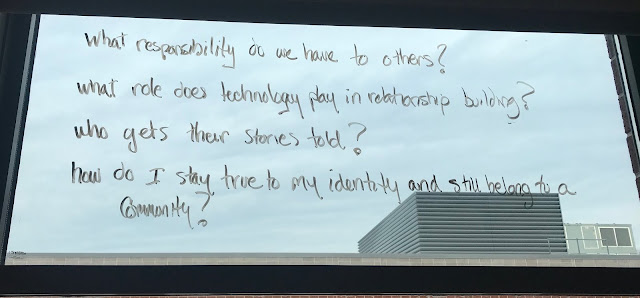Allegory Definition from http://literarydevices.net/allegory/
Allegory is a figure of speech in which abstract ideas and principles are described in terms of characters, figures and events. It can be employed in prose and poetry to tell a story with a purpose of teaching an idea and a principle or explaining an idea or a principle. The objective of its use is to preach some kind of a moral lesson.Although an allegory uses symbols, it is different from symbolism. An allegory is a complete narrativewhich involves characters, and events that stand for an abstract idea or an event. A symbol, on the other hand, is an object that stands for another object giving it a particular meaning. Unlike allegory,symbolism does not tell a story. For example, Plato in his “Allegory of Cave” tells a story of how some people are ignorant and at the same time, some people “see the light” – stands for an idea and does not tell a story.
Examples of Allegory in Everyday Life
Allegory is an archaic term and used specifically in literary works. It is difficult to spot its occurrence in everyday life, although recently, we do find example of allegory in political debates. The declaration of an ex-US president G.W Bush was allegorical when he used the term “Axis of Evil” for three countries and later the term “allies” for those countries that would wage war against the “Axis”.Allegory Examples in Literature
Below are some famous examples of Allegory in Literature:1. “Animal Farm”, written by George Orwell, is an allegory that uses animals on a farm to describe the overthrow of the last of the Russian Tsar Nicholas II and the Communist Revolution of Russia before WW II. The actions of the animals on the farm are used to expose the greed and corruption of the revolution. It also describes how powerful people can change the ideology of a society. One of the cardinal rules on the farm for the animals is:
'via Blog this'



No comments:
Post a Comment